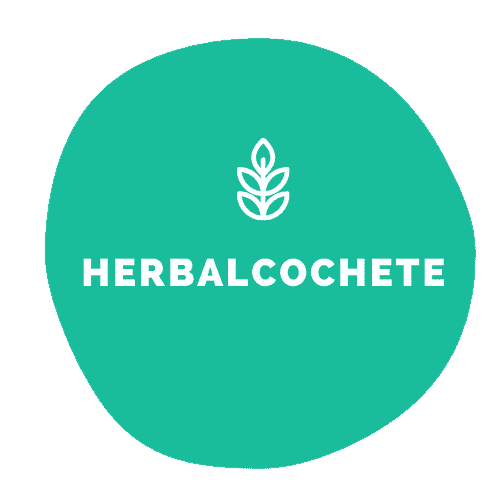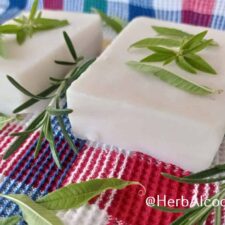I always thought that the most common name to feminine soap bars – soap bars meant for the female genitalia – would be intimate soap or feminine soap. After some search, I’ve stumbled upon … the yoni soap. That is the name you give to soap bars for your intimate zone. Is Yoni Soap good for you? Let’s find out about it in this post.
I wish to give a warning, this post can be read by anyone but its target audience is feminine, the same one that purchases special soaps and products for their intimate area.
Table of Contents
- Should You Use Soap In Your Genital Organs?
- A Recipe
- Yoni Soap Bars Available In The Market
- If You Really Have To Purchase a Yoni Soap Bar
- Alternatives
- Takeaway
First of all, this review is not about any specific soap brand or formula. It’s about giving information of what is yoni soap and why you should(n’t) use it.
Yoni comes from Sanskrit and it reffers primarily to an abstract representation of the Hindu goddess Shakti. The word is also interpreted as reffering to the “womb”, the “source”, and the female organs of generation. It also connotes the female sexual organs.
The plain reference to female sexual organs might be the reason for its usage in a soap bar name. I still prefer feminine soap bar, because it’s more explicit. I would never guess by myself that a yoni soap bar is a soap bar for your parts down there…

Should You Use Soap In Your Genital Organs?
I love handmade soap. I want to use it for my daily showers, long term. To wash my hands and face. It’s a great product to wash your skin, especially with some superfat. It’s very mild and the unsaponified oils help hydrate your skin.
But soap is not really meant for your hair or private area. Much less to wash inside your vagina. Why? Mainly, because of pH. Better said, because of the nature of the soap salts: they are alkaline, meaning that in a water solution, pH is more than 7.
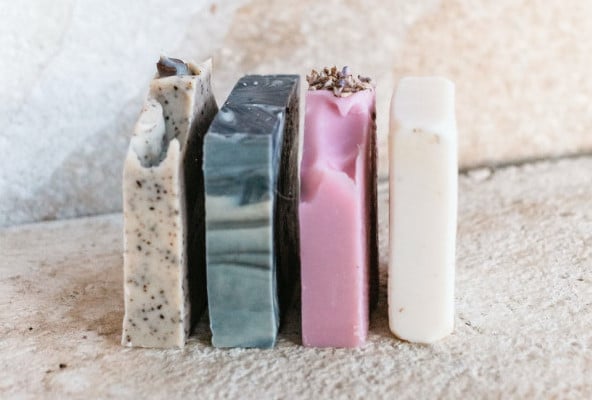
High pH in hair products might cause chemical breakage, as your hair and scalp is essentially slightly acidic: you must have heard of skin and haircare products with “neutral pH of 5.5”.
A Self-Cleaning Organ
Your sex organs are even more sensitive: they have acidic enviroments, delicately balanced to keep away yeast infections and bacteria. Soap has a pH around 7-9, which is perfectly fine for skin, but not for these acidic environments.
When we talk about washing female genitals we are actually talking about washing the vulvar area that comprises the exposed genital organs.
The vagina is an internal, self-cleaning and self-regulating organ that doesn’t need any washing to keep it at optimal health and cleanliness. When you use any sort of washing products on a daily basis, you are disrupting its balance and risking what you actually think you’re preventing: vaginal irritation and pain, increased risk of bacterial, fungal, and sexually transmitted diseases and infections, birth complications, cervical cancer, …
Therefore, soap, or ANY sort of products inside your vaginal area is a no-no. If you need to do any sort of treatment (I had a couple of vagina infections caused by fungus, and needed to run vaginal douches), only do them with medical orientation.
The Vulvar Area
So, what are you supposed to use to wash yourself? Because of the delicate ecosystem and self-cleaning nature of the vulva and vagina, the only recommended method by medical professionals to wash yourself is warm water. It is not medically necessary to perform any further washing.
But most of us wish to use a cleanser in addition, to feel fresher. Can’t deny that, I feel the same myself. First, use it only on your vulva, in your external organs. Second, use only plain, dye-free, fragrance-free products, dermatologically tested, with a pH around 4, since a healthy vagina has a pH varying between 3.8 and 4.5.
I have a personal experience using handmade soap in my private parts. For weeks, I’d feel a vague disconfort I wasn’t able to describe (but it was there), and sometimes itching. I’ve ended up discovering it was the alkaline nature of handmade soap, so I’ve switched to commercial shampoo – which has a pH of 5.5, at most 6. And the problem dissapeared.

A Recipe
As I was on my way to find out a homemade shampoo, and was already using homemade soaps and moisturizers, I was frustrated that I had to buy a commercial gel or shampoo just for my genitals… At some point, I had the idea of washing myself with my syndet shampoo bar… and I felt good! Clean, and without any disconfort or itching!
I’ve ended up formulating my own homemade intimate syndet bar recipe. While this is not lab-tested, this solid bar has a low pH (4) adjusted with citric/lactic acid and is completely dye-free. I like to use one essential oil in this recipe – tea tree as a antibacterial – , as I don’t feel any irritation, but you can make a fragrance-free bar, just skip the essential oil.
If you wish to see the recipe, check out the following link:
Yoni Soap Bars Available In The Market
So why don’t I use a handmade soap with low pH? Because the soap salts naturally created in your handmade soap are alkaline by nature, meaning they have a high pH. That’s how they are.
If you add products to chemically change them, they will no longer be soap salts but something else – most likely something messy, ugly, that you won’t have rubbing in your lower parts. Read more about this subject in the SoapMaking forum.
So, if you want to use a low pH product to wash yourself, no need to start chemical experiments at home. Just use one or a mixture of good-quality, very mild synthetic detergents, better known as syndet, like the ones found in baby products.
Read more in What is yoni soap? What makes a soap safe for the vagina? from SoapMaking Forum.
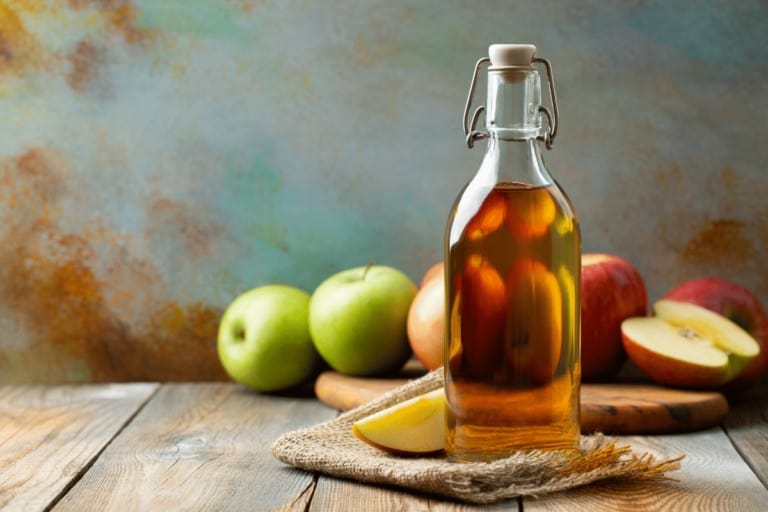
Apple Cider Vinegar in Soap
But Yoni soap bars claim to be natural handmade soaps with low pH. How do they achieve that? They add an acidic ingredient, like apple cider vinegar.
If you’re a soap maker, you know that vinegar neutralizes lye, and it’s used to clean soap spills, mainly on your skin. The problem is that you do need to use a lot of vinegar to neutralize a bit of lye. Why? Because vinegar is mostly water, containing around 5%-8% of acetic acid, the neutralizing substance.
First, if you’re making soap at home, DON’T use vinegar as a cleaning agent for your skin. Vinegar takes some time to react and neutralize the lye, and while that happens, lye is burning your skin! Wash the affected area immediately with running cold water, which is much more effective in preventing chemical burns.
Apple Cidar Vinegar Doesn’t Reduce pH
Second, while you can formulate a soap with vinegar (use it in the lye water) and get good results, you really can’t lower pH from 8 to 4 by this process. You would need to use a LOT of vinegar, and almost no oils, to get the resulting salt, sodium acetate, in enough quantities to lower soap pH, which is not a very good soap salt. You would only get an ugly mixture of soap, fatty acids, unreacted fat, etc. It’s not soap anymore.
What about using apple cider vinegar afterwards, as an addictive? pH does decrease but by an insignificant amount, again, and there is an increased risk of oxidation, due to the presence of free fatty acids and additional water content.
If you wish to read more about adding apple cider vinegar to handmade soap, check out:
- Vinegar In Soapmaking from The Ultimate Guide To Soap
- Apple cider vinegar soap from SoapMaking Forum
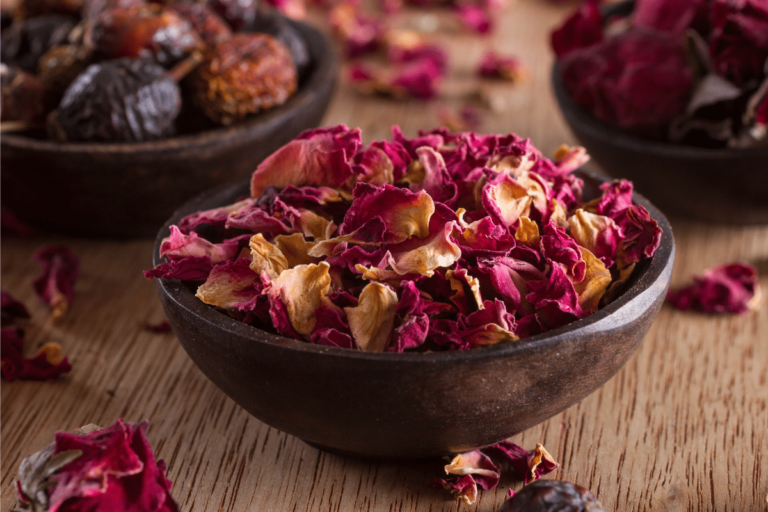
Dried Petals
I suppose women love flower petals, especially rose petals. Even I like to make my own site prettier with flowers and plants filled with colors.
While I advocate for the hydrating and cleansing benefits of a rose water infusion or a rose hydrosol any day, those are the only ways I am willing to use rose petals in my homemade skincare products – soap included. Or even syndet bars.
A soap or a syndet bar is made to wash yourself with water. So, it will get into contact with a lot of water. Dried petals, when in contact with water, tend to become brownish, ugly-looking and anything that resembles diseases, sickness and rot…
You can use dried petals to decorate your soap. When I make my own soap with dried petals, once I start using it in the shower, I usually remove all that dried plant material as I know it will get spoiled. I tend to do it less often, actually.
The only reason I can think of adding dried petals to a soap meant for your delicate parts, is the whole mental matching we make between dried flowers, natural products, nice scents and cleanliness. Believe me, dried petals do nothing to a soap but to decorate it. Plant properties, if any survive saponification, are imparted through oil or water infusions, plant extracts or essential oils. Not dried rose petals.
Health Benefits
Some Yoni soap bars look like miracle medicins: for example, check out this soap. It helps healing everything in your reproductive system, even stuff like hemorrhoids!
They help with menstrual cramps, all kinds of vaginal diseases, birth complications, pH balance, improve your hormonl system, improve your sex life, your libido, boost your mood… honestly, just get a yoni soap bar and your problems are solved!
Don’t forget one thing: soap main function is to wash. It may be more or less harsh to your skin; it may or may not add some anti-inflammatory, anti-bacterial or other properties that help keep your skin healthy. But they ARE NOT medicins! They won’t heal anything.
If You Really Have To Purchase a Yoni Soap Bar
It is true that commercial products have too much synthetic chemicals, that may disrupt your health in many ways: sensitive skin, allergies, endocrinal issues. Around two years ago, I’ve started a journey to go all natural in skincare and haircare (and I didn’t even know it 🙂 ), and I don’t regret it one bit. I like that I am using more natural products, less plastic and making less waste.
I believe that natural ingredients will provide you healthier ways to keep your skin and hair clean and in good shape, than a bunch of synthetic (and cheap) ones. Pretty much like whole food will provide your with better health than processed, canned food.
However, “natural”, “chemical-free”, “organic”, “non-GMO”, etc. are words that are starting to be indiscriminatelly (ab)used by many marketing campaigns. Just because something states to be “natural” or “chemical free”, doesn’t mean it’s automatically safe or good for your health. A good example is skincare recipes containing water and no broad spectrum perservative. Another one is a yoni soap bar for your private area.
If You Really Have To Buy It….
If you really want to purchase a yoni soap, I’d recommend you to:
- Stay away from yoni soap bars you don’t even know about the ingredients list
- Analyse the ingredients list. An ingredients list with natural oils included (with or without sodium hydroxide) is most likely handmade soap. Don’t use them in your vagina, and use them with caution (or sparsely) in your external organs.
- Purchase a “Low pH soap”, knowing this is a myth, but it may be a good soap anyway. A soap with a list of ingredients containing oils, apple cider vinegar (let’s hope they were correctly formulated) or lemon juice, is NOT a low pH soap. Use it for your daily showers – and use your 5.5 pH shampoo “down there”, or just water.
- Look for mild surfactants with low pH like SCI, SLSa or cocamidropopyl betaine

Alternatives
You can simply follow my homemade recipe: it’s a simple syndet bar with SCI, water, coconut oil, sweet almond oil (rest assured they remain in the final product as conditioning oils only) and a preservative.
In alternative, you may purchase commercial skincare products made with mild surfactants, these were recommended in a post by Healthline:
Takeaway
A yoni soap bar is an intimate wash product. Beware that your genital organs do not really need to be washed with anything other than water to remain clean and healthy. Natural scents are not “foul” and they don’t need to smell like roses. Still, using a washing agent may be your personal preference.
Yoni soap bars are sold as natural “low pH soap”, something that really doesn’t exist. Low pH “soap” can only be found among bars made with syndet ingredients, which are synthetic detergents commonly used in commercial skincare cleansers. Still, they are good soap bars like any other, for daily showering or bathing.
You don’t need to use yoni soap bars for your intimate parts. Also, it’s “bad marketing”, to not say a flat-out lie, when stating that they have low pH, or help aid with several diseases and conditions common in sexual female organs and the reproductive system.
Use plain water. If you can’t really go without a washing cleanser, a syndet product made with mild surfactants, dye-free and fragrance-free.
I hope you enjoyed this post! Let me know about your experience with soap or syndet products in your intimate area, and if you ever used and enjoyed a yoni soap bar! Or if you have any questions, leave a comment below.
